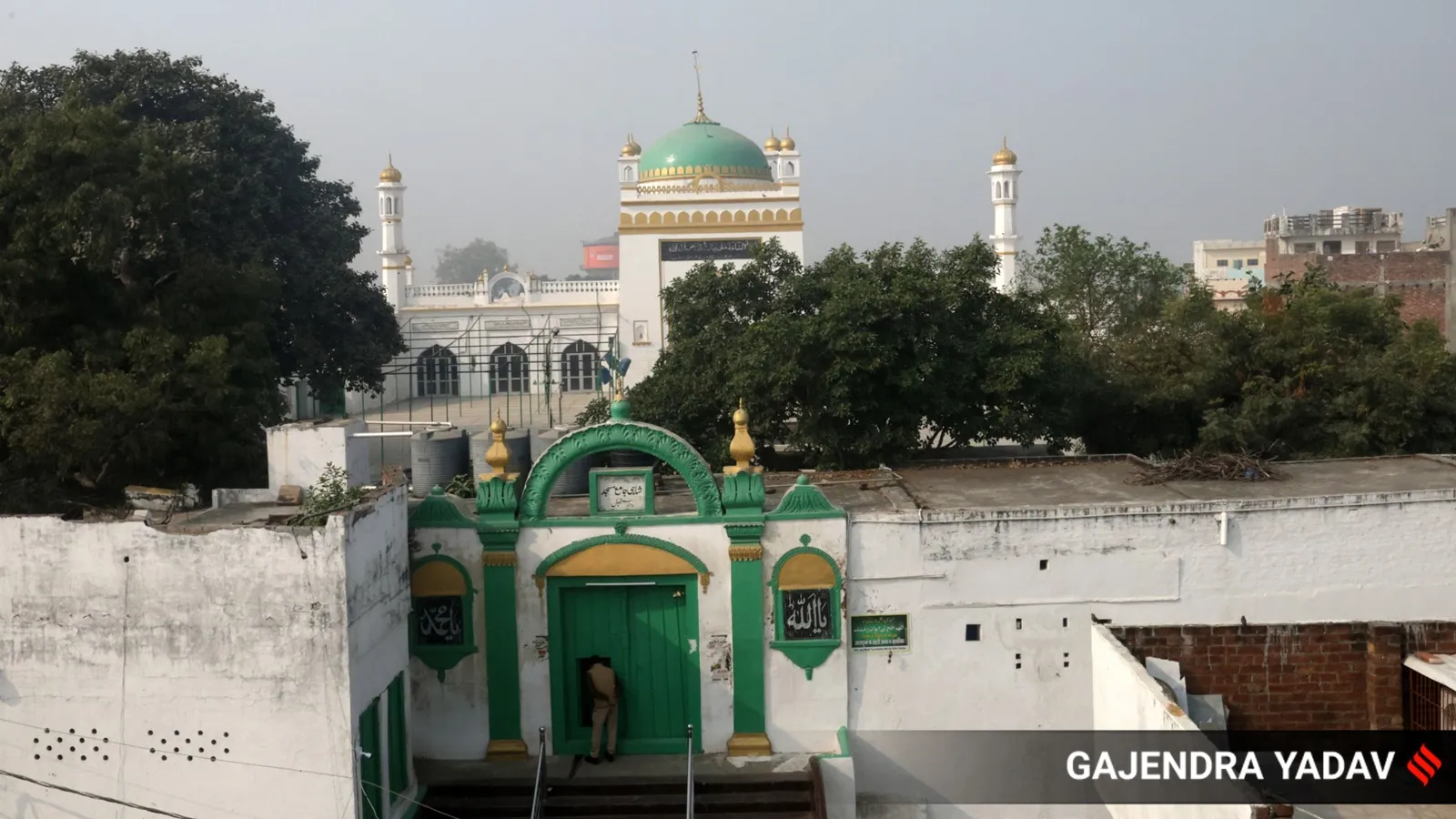 |
|
The Supreme Court of India intervened in a contentious legal dispute surrounding the Shahi Jama Masjid in Sambhal, Uttar Pradesh, issuing a stay order on a lower court's directive for a mosque survey. This decision, delivered on Friday, stems from a civil suit alleging the mosque was constructed on the site of a demolished Hindu temple. The plaintiffs, eight individuals, filed the suit on November 19th, resulting in an ex-parte order from the trial court permitting a survey of the mosque. The speed at which this order was granted and executed, without providing sufficient reasoning or terms of reference, raised serious concerns. This rapid progression led to immediate tensions and ultimately violence, highlighting the sensitive nature of the situation and the urgent need for judicial intervention.
The Supreme Court's order directs the Shahi Jama Masjid management committee to appeal the trial court's decision to the Allahabad High Court. This strategic move shifts the legal battle to a higher judicial level, allowing for a more comprehensive review of the case's intricacies and legal arguments. Crucially, the Supreme Court instructed the trial court to halt all further proceedings related to the survey until the Allahabad High Court renders its decision. This temporary halt aims to de-escalate the situation and prevent further unrest in Sambhal. The Supreme Court emphasized the importance of maintaining peace and harmony in the region, highlighting the potential for significant communal tensions if the survey were to proceed without higher court oversight. The court also reiterated that its decision does not represent a judgment on the merits of the underlying legal claims.
The urgency of the situation was amplified by the swift actions taken following the trial court's order. Within mere hours of the order's issuance, a team, including an advocate commissioner, plaintiffs' lawyers, and police, arrived at the mosque to initiate the survey. This rapid deployment, occurring during evening prayers on one occasion and dawn prayers on another, disrupted religious practices and triggered heightened anxieties among the local Muslim community. Reports indicate that the survey prompted significant unrest and violence, resulting in fatalities. While police maintain that they did not fire the shots resulting in deaths, the incident underscores the volatile climate surrounding the controversy. The Supreme Court's order to seal any reports submitted by the advocate commissioner further protects the integrity of the ongoing investigation and aims to prevent any premature disclosures that could escalate tensions.
The mosque management's plea to the Supreme Court argued that the mosque has existed for centuries and serves as a continuous place of worship for the Muslim community. The allegations made in the civil suit were countered by the mosque’s claim of continuous and uninterrupted presence since the 16th century. The plea also highlighted the lack of due process and reasoned justification in the trial court's rapid ex-parte order. The speed with which the survey was conducted, and the disruptive nature of these actions within a place of worship, further emphasizes the contention surrounding the case and the potential for misinterpretations of legal processes.
The Supreme Court's decision to adjourn the appeal until January 6, 2025, provides a necessary timeframe for the Allahabad High Court to deliberate and deliver its verdict. This interim period will allow the higher court to comprehensively assess the evidence, arguments, and potential legal ramifications involved. It also allows for a period of calm in Sambhal, giving communities time to heal and regain stability in the wake of recent events. The decision to refer the matter to the Allahabad High Court underscores the importance of appropriate legal channels and due process, emphasizing that judicial processes must be carried out with careful consideration of their potential impact on communal harmony and peace.
This case raises significant questions about the balance between legal processes, historical claims, and the maintenance of communal harmony. The sensitive nature of religious sites and the potential for even seemingly procedural actions to trigger widespread unrest requires meticulous legal oversight and a cautious approach. The Supreme Court's actions reflect an attempt to mitigate the potential for further conflict while ensuring a fair and just legal process unfolds. The outcome of the Allahabad High Court's review will be closely watched, not only for its legal implications but also for its potential impact on inter-communal relations and the ongoing debate surrounding the protection and preservation of religious sites in India.
